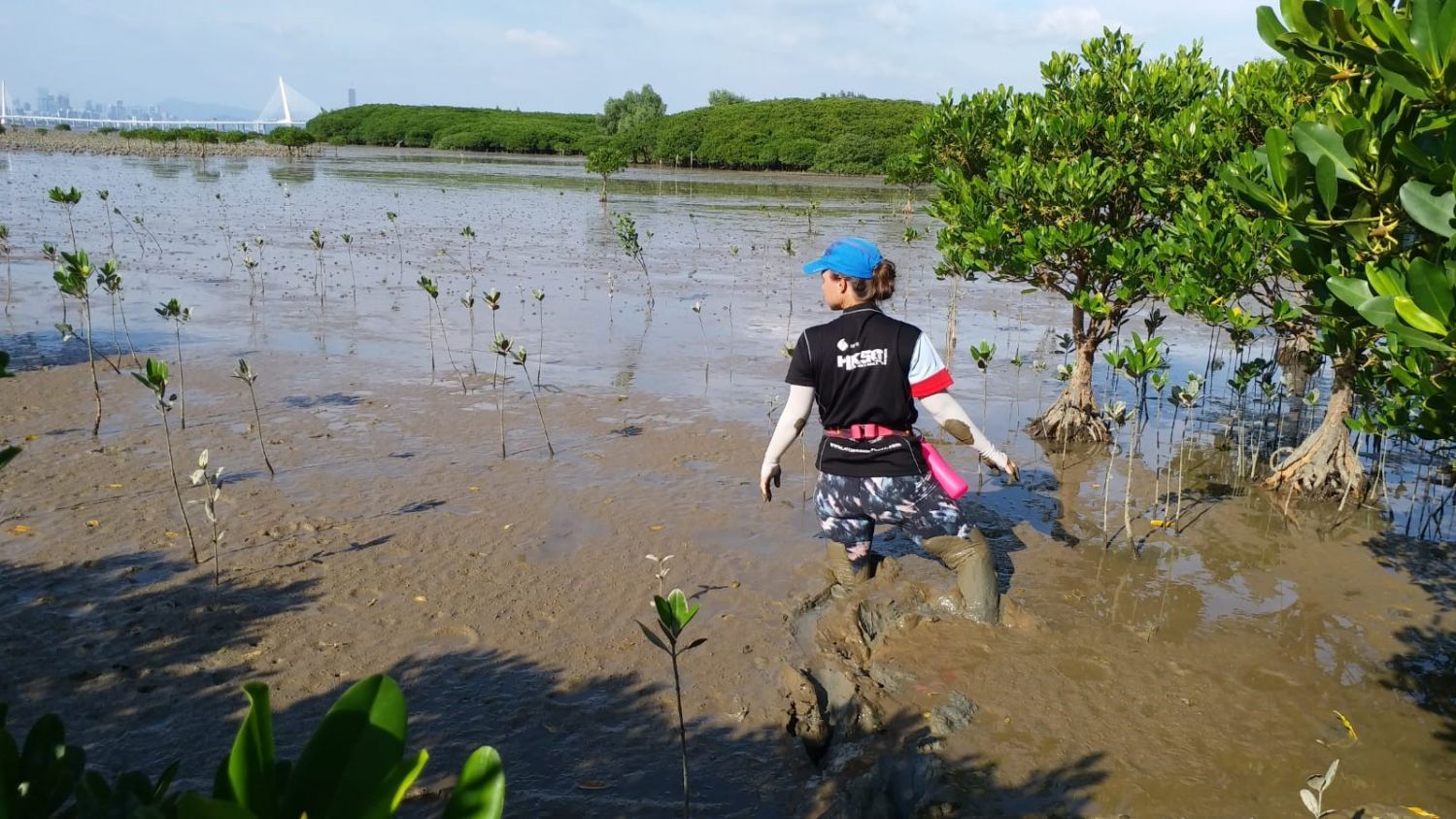For Earth Day, Hongkonger Marine Thomas talks about her career pivot from luxury fashion to The Nature Conservancy and how motherhood has added urgency to her work in restoration and community outreach
Marine Thomas remembers vividly when she had “the lightning bolt moment” about what to do with her life.
After her father’s sudden death in 2012, she no longer felt inspired by her work in the corporate fashion world and quit to spend a year travelling and scuba diving with a friend who’d also lost a parent. Back at home in Hong Kong’s Big Wave Bay, she was watching a documentary about shark finning and found herself bawling.
It hit her that she had the opportunity to start over, so instead of falling back into the fashion industry, why not pursue her longtime passion for the environment?
“The hardest part was figuring out what I wanted to do, but once I figured it out, when I truly want something, I tend to get it,” says Thomas, citing her determination, smarts, and a bit of luck. After knocking on the doors of many organisations, The Nature Conservancy (TNC) offered to take her on as an unpaid volunteer with its youth conservation education programme. Thomas agreed and, at age 30, moved back in with her mother in Mid-Levels.
“Starting again, I put myself in a position where I was vulnerable but also excited,” says Thomas. “You can prove to yourself how much you’re capable of when you’re pushed out of those comfort zones and try something new. You’re working a third of your awake life, so that’s a pretty important piece to get right if you want a fulfilling life.”

Thomas spent two years in night classes to complete a part-time master’s degree in environmental management in 2019—just months after her daughter’s birth—and now heads the conservation team at TNC. That means she’s often deep in the mud, doing field work to restore local shellfish habitats. She has the scars on her legs from oyster cuts to prove it and laughs that it’s a far cry from the glamour of her past life at Longchamp and Chanel.
Thomas doesn’t think twice though. “It’s so rewarding; restoration is something intrinsically hopeful and it gets a lot of people excited, including the volunteers who come out with us,” says Thomas. “It’s our mission and prerogative to connect people with nature and wildlife because it’s their right as human beings but also because it helps raise awareness... you will not protect what you don’t love and you can’t love what you don’t see.”
Below Thomas elaborates on the importance of an inclusive conservation approach, why Hong Kong needs better marine habitat protections, and how she manages eco-anxiety.








